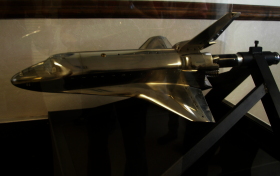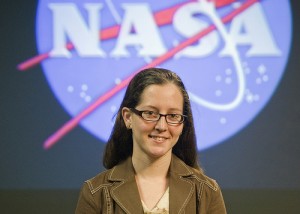Yesterday was my last day at NASA Langley.
As always, leaving is bittersweet. Working in Garry's lab has been fantastic and it's going to be hard to find a job next summer that tops it. But I'm looking forward to senior year--a good lineup of classes, my thesis, the fencing team.
If I was to pick a favorite part of the summer, it'd be this: seeing my lab transition from complete strangers the first day, awkwardly introducing ourselves over lunch, to operating as a close-knit team. Helping each other carry computers to the freight elevator, debating algorithms for autonomous quadcopter obstacle avoidance, laughing over mugs of tea in the evenings. I've watched group formation theories in action (such as Tuckman's forming-storming-norming-performing theory). It may sound cheesy, but we learned to work with our differences, figured out how to combine our strengths, and the result was amazing. The amount of work we got done this summer setting up the Autonomous Vehicle Lab impressed a lot of people at Langley.
Yes, I'm nostalgic already.
I met a plethora of great people and learned so much. And I have more stories to share, of course. You'll continue hearing about my LARSS summer in the coming weeks.






